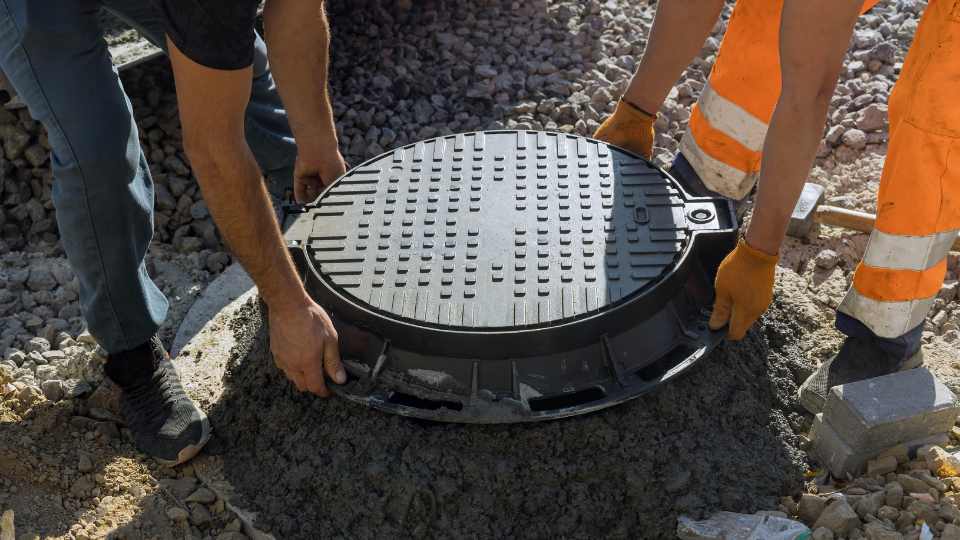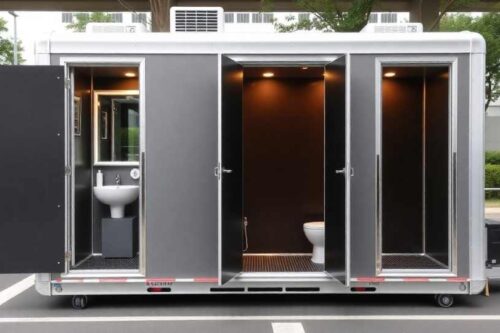How Much Does it Cost to Start a Septic Business?
Starting a septic business typically costs between $50,000 and $250,000. This range depends on factors such as location, business size, and the necessary equipment. Initial expenses include purchasing trucks and pumps, obtaining licenses and permits, and marketing costs. Ongoing costs like maintenance, labor, and disposal fees also need to be considered for effective financial planning.
This blog post includes all the information you need about initial investment costs, ongoing expenses, and budgeting. So, keep reading!
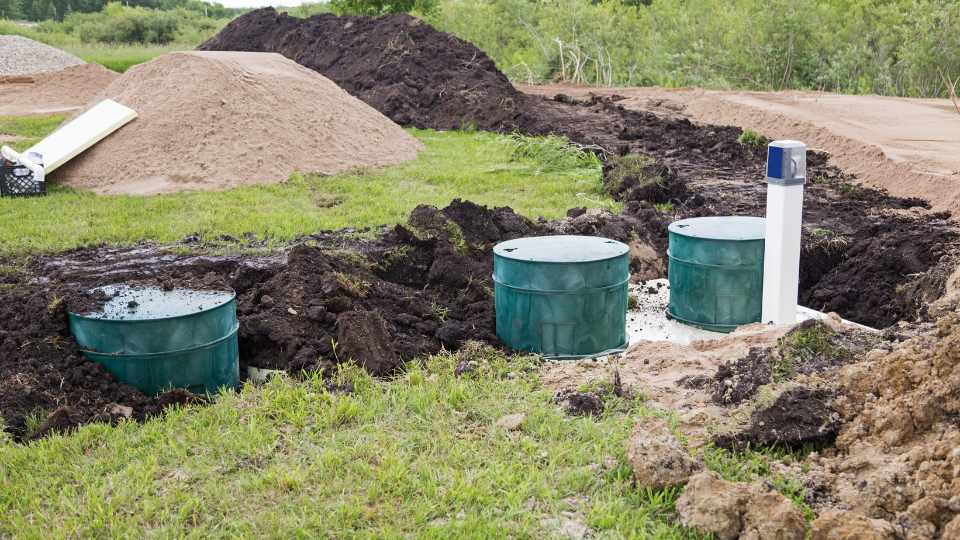
Starting a septic business can be a rewarding endeavor; however, it necessitates careful planning and a comprehensive understanding of the industry.
From comprehending market dynamics to navigating costs, licenses, and permits, each step is integral to achieving success.
This guide addresses essential components, including initial and recurring expenses, effective marketing strategies, financial management considerations, and the significance of developing a skilled workforce.
Whether one is merely exploring the idea or prepared to initiate a launch, this overview provides the necessary knowledge to facilitate knowledge-based decision making.
What is a Septic Business
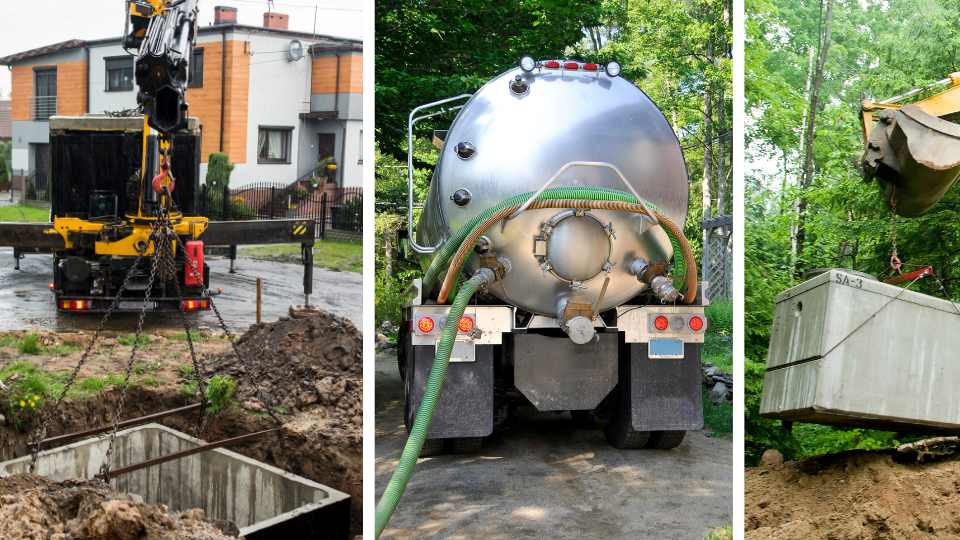
A septic business provides services related to the management and treatment of wastewater from homes and businesses. This includes installing, maintaining, and emptying septic systems that are used to treat sewage. These businesses help keep the environment clean and ensure that waste is handled safely.
Overview of Starting a Septic Business
Initiating a septic business requires a thorough understanding of the waste management industry, incorporating various aspects from initial startup costs to operational efficiency.
Entrepreneurs entering this sector must meticulously assess their business plan, taking into account essential factors such as equipment expenditures, licensing fees, and regulatory compliance.
A comprehensive understanding of the local market and competition analysis is vital in establishing competitive pricing strategies and optimizing profit margins.
Furthermore, awareness of environmental regulations and industry standards will assist business owners in making informed decisions that align with sustainable practices.
Understanding the Industry and Market
Understanding the septic industry and its market dynamics is essential for any entrepreneur entering the septic business, as it forms the foundation of an effective overall business strategy.
By thoroughly analyzing market indicators, one can identify local market demand, assess the competitive landscape, and evaluate customer service expectations—factors that are crucial for operational success. Additionally, emerging trends such as eco-friendly waste management solutions are gaining relevance, fueled by heightened environmental awareness among consumers.
Entrepreneurs must also navigate market challenges, including regulatory compliance and advancements in waste treatment technologies. Given the increasing emphasis on sustainable practices, it is imperative for business strategies to align with these evolving expectations to ensure long-term success in this critical industry.
Costs to Consider
When establishing a septic business, it is crucial to comprehend the various costs involved to ensure effective financial planning and long-term sustainability.
Significant considerations include initial startup expenses, such as the purchase of trucks and pumps, as well as ongoing costs, which encompass equipment leasing and maintenance. Labor costs for staffing operations also represent a critical factor.
Furthermore, evaluating financing options, including small business loans and startup grants, can facilitate the necessary capital investment for seamless operations. It is equally important to account for insurance, disposal fees, and other operational expenses to maintain overall profitability.
Initial Investments and Expenses
Initial investments and expenses for a septic business can vary significantly based on the scale of operations. Typically, these expenses include equipment costs, such as the acquisition of trucks, pumps, and chemical supplies.
Along with the essential equipment, prospective operators must consider the costs associated with obtaining necessary permits, licenses, and registration fees, which are critical for ensuring compliance with local regulations. Properly equipping a business also entails acquiring safety gear and maintenance tools that promote operational efficiency.
Furthermore, it may be necessary to invest in on-site training for staff, which is crucial for effectively managing the complexities of septic systems and providing excellent customer service.
Comprehensive financial planning is imperative, as it will facilitate a streamlined process and establish a solid foundation for a successful venture within this industry. 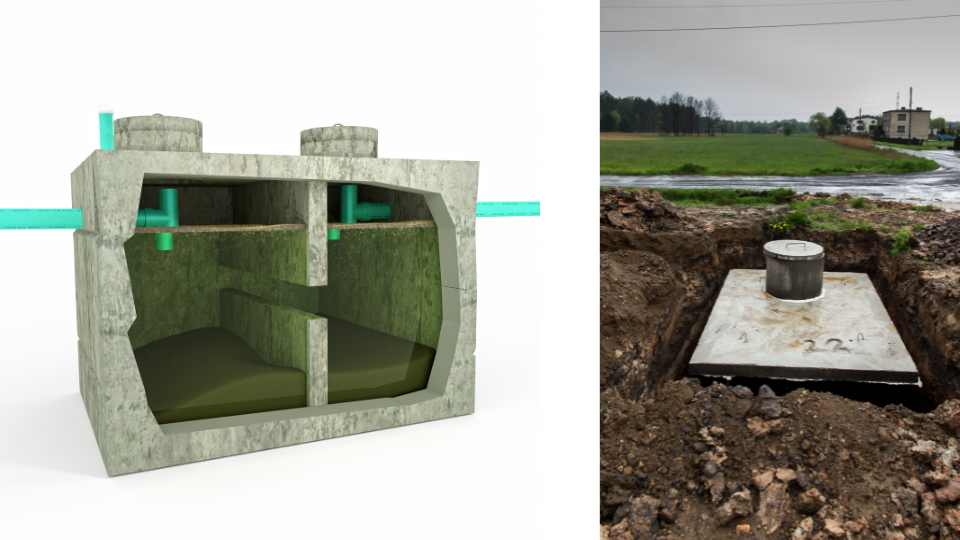
Initial Investment Overview
|
Expense Category |
Estimated Cost Range |
|---|---|
|
Equipment (Trucks, Pumps) |
$30,000 – $150,000 |
|
Licenses and Permits |
$2,000 – $10,000 |
|
Insurance |
$1,000 – $5,000 |
|
Marketing and Advertising |
$1,000 – $5,000 |
|
Safety Gear and Tools |
$2,000 – $5,000 |
|
Training |
$1,000 – $3,000 |
|
Total Estimated Startup Costs |
$50,000 – $250,000 |
Recurring Costs and Expenses
Recurring costs and expenses in a septic business encompass maintenance costs for equipment, labor costs, and various operational expenses that must be considered in ongoing financial planning.
These continual expenses have a significant impact on overall profitability, necessitating careful consideration and strategic management. Regular maintenance activities, such as pump-out services and equipment repairs, can accumulate over time and diminish profits if not accurately budgeted.
Employee wages represent a substantial portion of these recurring costs and must comply with labor laws, thereby affecting the bottom line. Additionally, disposal fees, essential for the safe management of waste, may fluctuate based on regulatory changes and operational volume, presenting further financial challenges.
Insurance costs, while crucial for protecting the business, also contribute to the overall financial burden, requiring a balanced approach to ensure both stability and growth.
Recurring Costs Breakdown
|
Cost Category |
Estimated Monthly Cost |
|---|---|
|
Labor Costs |
$3,000 – $10,000 |
|
Equipment Maintenance |
$500 – $2,000 |
|
Disposal Fees |
$200 – $1,000 |
|
Insurance |
$100 – $500 |
|
Fuel and Vehicle Maintenance |
$300 – $1,500 |
|
Office Expenses |
$200 – $800 |
|
Total Estimated Monthly Costs |
$4,600 – $16,800 |
Equipment List for Septic Business
|
Equipment Type |
Purpose |
Estimated Cost |
|---|---|---|
|
Vacuum Trucks |
Waste collection and transport |
$50,000 – $150,000 |
|
Pump Systems |
Waste removal and treatment |
$5,000 – $20,000 |
|
Hand Tools |
Installation and maintenance of systems |
$500 – $2,000 |
|
Safety Gear |
Protection for employees (gloves, masks) |
$200 – $1,000 |
|
Chemical Supplies |
Treatment of waste |
$500 – $3,000 |
Obtaining Necessary Licenses and Permits
Acquiring the necessary licenses and permits is an essential step in establishing a septic business, as it ensures compliance with local, state, and federal health regulations.
Requirements and Application Process
The requirements and application process for obtaining licenses and permits in the septic industry can be intricate, necessitating meticulous attention to detail to ensure regulatory compliance.
Navigating these complex regulations demands a comprehensive understanding of the diverse criteria set forth by each local jurisdiction, which often includes health and safety standards crucial for protecting public welfare.
Typically, individuals must compile essential documents, such as proof of training and site assessments, as well as complete application forms that detail specific operational practices.
Noncompliance with these health regulations can result in substantial penalties, including fines and the revocation of licenses, highlighting the critical importance of thorough adherence to compliance requirements in the septic sector.
Therefore, diligent preparation and strict adherence to the prescribed steps can significantly mitigate the risk of encountering unnecessary complications.
Estimated Timeframe for Licensing and Permits
|
License/Permit Type |
Estimated Processing Time |
|---|---|
|
Business License |
1-4 weeks |
|
Septic Installation Permit |
2-8 weeks |
|
Environmental Health Permit |
4-12 weeks |
|
Safety Compliance Certification |
1-3 months |
Marketing and Advertising Strategies

The development of effective marketing and advertising strategies is essential for customer acquisition in the highly competitive septic business environment.
Establishing a strong online presence is a critical component in attracting and retaining clientele.
Effective Ways to Reach Potential Customers
To effectively engage potential customers in the septic business, a strategic combination of advertising, customer reviews, and community outreach is essential for enhancing visibility and credibility.
Networking opportunities offer a valuable avenue for businesses to connect directly with the community. By participating in local events or collaborating with complementary services, businesses can create meaningful touchpoints that foster relationships.
Delivering exceptional service is crucial, as it leads to positive customer testimonials, which serve as a significant differentiator in the market. Prospective customers seeking septic solutions often rely heavily on the experiences of others; therefore, showcasing authentic reviews can greatly influence their decision-making process.
Furthermore, emphasizing unique selling propositions, such as eco-friendly services or rapid response times, can attract a broader audience and distinguish a business within a competitive landscape.
Managing Finances and Budgeting
Effective management of finances and budgeting is essential for the long-term success of a septic business. This necessitates the development of comprehensive financial projections and rigorous expense tracking to ensure the maintenance of healthy profit margins.
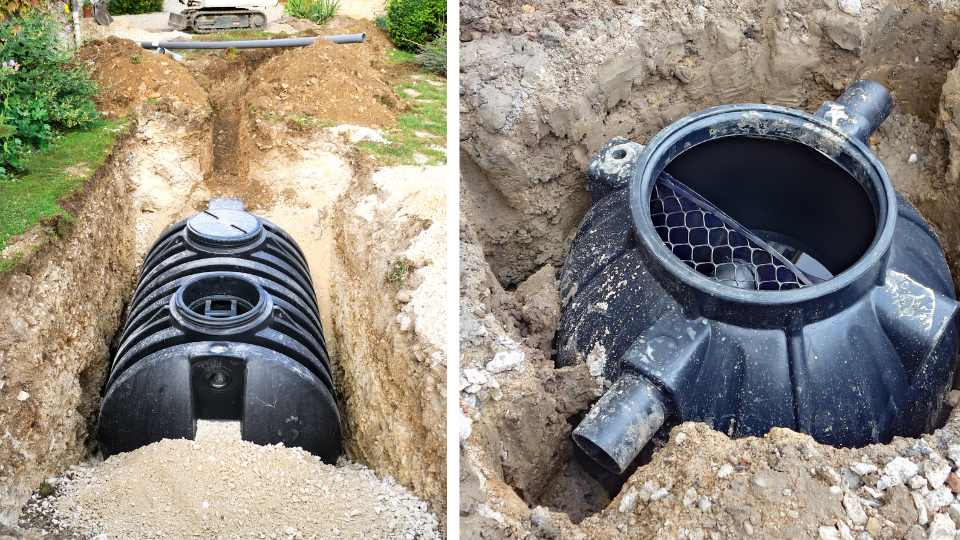
Tips for Financial Success and Sustainability
To achieve financial success and sustainability in the septic business, entrepreneurs must prioritize effective budgeting and meticulous expense tracking to enhance profit margins.
By implementing a structured budgeting technique, such as the zero-based budgeting method, business owners can ensure that every dollar is purposefully allocated, thereby reducing unnecessary expenditures and maximizing income.
Utilizing digital tools and applications for expense tracking can streamline this process, facilitating easier monitoring of daily spending habits. Regularly reviewing financial statements and categorizing expenses allows entrepreneurs to identify areas for improvement, guiding them toward more informed purchasing decisions.
Ultimately, reinforcing these practices not only enhances business sustainability but also enables owners to adapt to financial fluctuations, ensuring long-term viability in a competitive market.
Comparison of Financing Options
|
Financing Option |
Description |
Pros |
Cons |
|---|---|---|---|
|
Small Business Loans | Loans specifically for small business startups |
Lower interest rates |
Requires good credit |
|
Government Grants |
Financial aid that does not require repayment |
No repayment needed |
Competitive application process |
|
Personal Savings |
Using personal funds for startup |
Full control over funds |
Risk to personal finances |
|
Investors |
Raising funds from private investors |
Additional expertise can help |
Loss of ownership/control |
Hiring and Training Employees
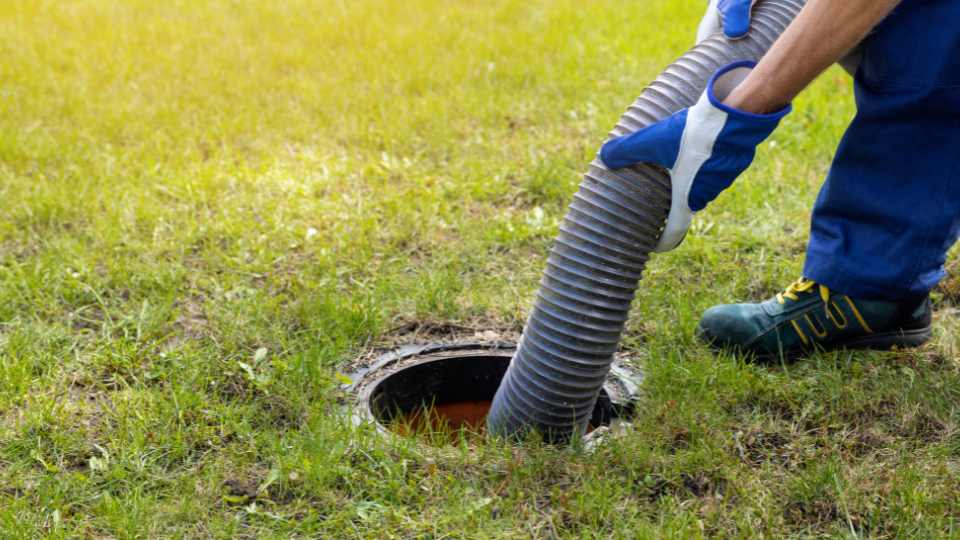
Hiring and training employees is a crucial component in establishing a successful septic business, as a skilled workforce directly impacts the quality of service and operational efficiency.
Building a Skilled and Reliable Team
Building a skilled and reliable team in the septic business necessitates comprehensive training programs designed to enhance employee capabilities and ensure service differentiation.
To achieve this goal, it is essential to implement structured training methodologies that encompass both technical skills and customer service excellence. Engaging employees in hands-on workshops, simulations, and ongoing education not only sharpens their expertise but also fosters a sense of belonging and ownership within the team.
The significance of competitive employee wages cannot be overlooked, as they play a crucial role in attracting and retaining talent. A well-compensated workforce tends to be more motivated and productive, ultimately leading to improved operational efficiency and elevated customer satisfaction.
Investing in employees is a strategic approach that translates into enhanced service quality and long-term success for the business.
Read Also: How to Start a Cabin Rental Business
Read Also: How to Start a Business in Upscale Portable Bathrooms
Read Also: How to Start a Bounce House Business
Read Also: How to Start a Bamboo Clothing Business
Frequently Asked Questions
What is the average cost to start a septic business?
The average cost to start a septic business can range from $50,000 to $250,000, depending on the location, size of the business, and equipment needed.
What are the initial expenses involved in starting a septic business?
The initial expenses for starting a septic business include obtaining necessary licenses and permits, purchasing equipment and supplies, and marketing and advertising costs.
Do I need special training or certification to start a septic business?
Yes, most states require septic business owners to have specialized training and certification in order to operate a septic business. This ensures that the business follows proper regulations and guidelines in the handling and disposal of septic waste.
Are there ongoing costs associated with running a septic business?
Yes, there are ongoing costs such as maintenance and repair of equipment, disposal fees for septic waste, and insurance costs that need to be considered when starting a septic business.
Are there any financial assistance programs available for starting a septic business?
Yes, there are government grants and loans available for small businesses, including those in the septic industry. It is important to research and apply for these programs to help with the initial costs of starting a septic business.
Can I start a septic business part-time or do I need to commit to it full-time?
It is possible to start a septic business part-time, but it may not be as successful as a full-time commitment. Running a septic business often requires immediate response to emergencies and regular maintenance work, which may be difficult to manage while working another job.


